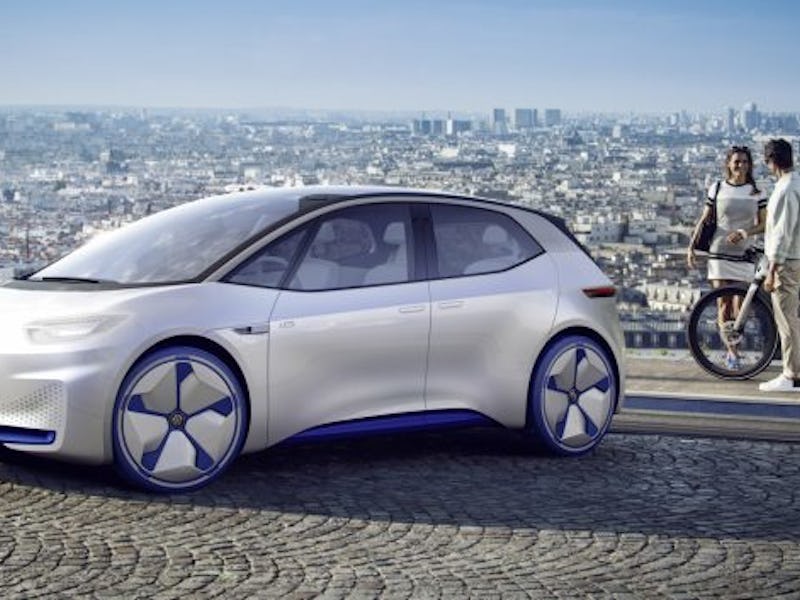Volkswagen's Emission Scandal Leads to Something Completely Different

In 2016, the electric vehicle market grew 60 percent, with 2 million cars on the road. That number is expected only to rise over the coming decade, so it’s no wonder German car manufacturer Volkswagen has announced its own plans to compete in this growing sector.
Speaking on behalf of VW at the Munich Automobil Forum, the company’s chief global strategist Thomas Sedran said VW intends to create an electric vehicle for the masses and undercut Tesla’s $35,000 Model 3. The car, called Volkswagen I.D., would be available in Germany in 2019 and, Sedran said, cost as little as $27,000. The sleek four-door all-electric vehicle I.D. would also beat Tesla’s Model 3 battery. While the Model 3, which rolls out later this month, goes about 215 miles on a full battery, VW says the I.D. will hit between 250 and 370 miles.
This comes on the heels of VW brand chief Herbert Diess’s major diss. “Anything Tesla can do, we can surpass,” he said at a press conference in May. “[Tesla] is a competitor we take seriously. Tesla comes from a high-priced segment, however they are moving [to less expensive cars]. It’s our ambition, with our new architecture, to stop them there, to rein them in.”
But reining in the electric vehicle market won’t be easy, especially for a brand still on the rebound.
See also: VW’s I.D. Buzz Hippie Van Looks Chill AF in this New Promo Video
Volkswagen I.D., on the left, and Tesla's Model 3, on the right
In 2015, Volkswagen’s emissions scandal broke wide open. Since 2008, the German car manufacturer had been installing so-called “defeat devices” in some diesel engine models that enabled them to detect when the car might be undergoing an emissions test, based on speed and consistency, and emit less CO2 from the tailpipe as a result.
Nearly two years later, VW is rebranding itself as an environmentally-friendly manufacturer for the masses. That’s thanks in large part to court orders: As part of the settlement with the Environmental Protection Agency and the state of California, Volkswagen must build electric charging stations as part of its Electrify America plan. While the settlement is expensive — $2 billion is at play — recent trends show it might make good business sense over the long-term.
That’s because, when it comes to electric cars, infrastructure is half the battle. VW’s Sedran gets this — speaking at the Munich Automobil Forum, he also announced a high-speed charging network for electric vehicles. Few details were available, but the network will be launched only in Europe as part of a collaboration with BMW, Mercedes, and Ford.
In the United States, meanwhile, there are about 16,000 electric charging stations, compared to 168,000 gas stations and no plans for an open supercharging network, though Tesla is working on one for its own cars. To sell consumers on electric vehicles, which feel inherently riskier than hybrid or traditional cars due to their limited range, better batteries and more charging stations are essential. While VW is reportedly struggling to meet its commitment for 100 charging stations in California by 2020, there’s hope those court-mandated goals can keep the company headed in the right direction.